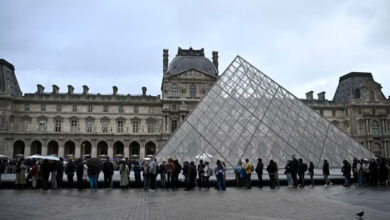
TUNIS – Tunisia, birthplace of the Arab Spring pro-democracy uprisings, on Thursday criticized the Egyptian army's removal of elected president Mohamed Morsy as "a coup against legitimacy" and urged Cairo to guarantee his safety.
Morsy rose to power after autocratic president Hosni Mubarak was toppled in a 2011 uprising inspired by the popular revolt against dictatorship in Tunisia a few weeks before. Moderate Islamists were subsequently elected to govern Tunisia.
"Military intervention is totally unacceptable and we call on Egypt to ensure that Mursi is physically protected," said President Moncef Marzouki. "We view what is happening in Egypt with concern – the arrests of journalists and politicians.".
Tunisia's ruling Ennahda party denounced also what it called a "coup against legitimacy" in Egypt. "Ennahda rejects what happened and believes legitimacy is represented by President Morsy and no one else," Ennahda said in a statement.
It said it feared that "this coup will fuel violence and extremism" and induce despair in the value of democracy.
Morsy was ousted after mass protests exceeding the size of those that toppled Mubarak. Critics said Morsy fell because his Muslim Brotherhood, despite a limited electoral mandate, focused on seizing total control of the state rather than tackling myriad problems of economic breakdown and poor governance.
Although Western leaders were unhappy about the undemocratic way in which Morsy lost power, they had grown concerned about Morsy's sectarian drift despite Egypt's social diversity and tempered their criticism of the interim military takeover.
At a joint news conference with Marzouki, visiting French President Francois Hollande declined to speak of a coup in Egypt, saying merely that "the democratic process has stopped and must return".
The role of Islam has grown in Tunisian society and been enshrined in a new constitution since Ennahda's election in 2011, but religious-secular divisions are seen as less severe and volatile than in Egypt.
Last March, Ennahda responded to pressure from the secular opposition and accepted the appointment of independent ministers to deflect accusations that it aimed to control all aspects of the state and stifle social freedoms.
Ennahda now co-governs with two secular parties.



